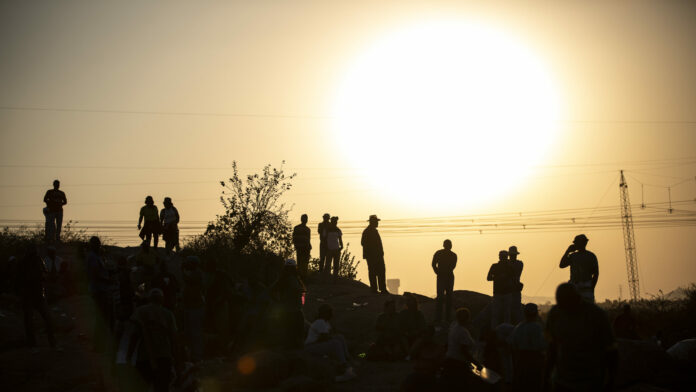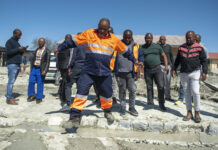
EVERY August for the past six years since we acquired the Lonmin operations, I have taken time to reflect deeply as we prepare to commemorate the Marikana tragedy.
The primary intention behind our Annual Marikana Commemoration Lecture is to share the progress made on the journey of renewal following the tragedy, which is founded on three key pillars: Honour, Engage and Create. Each lecture shares wisdom from an eminent thought leader allowing us to consider what has been learned, and how we can apply this going forward to the betterment of our country and society.
Inevitably this leads me to deliberate on the social and economic challenges and opportunities we face as a nation, on the matters affecting our business locally and internationally, and the external developments in the wider world.
Last year, I reflected on the role and potential of the recently established Government of National Unity. At that time, the GNU was setting out from a good starting point with its June 2024 Statement of Intent – essentially the statement of its Purpose and Vision, with a focus on securing materially higher inclusive economic growth. It set out clearly the key principles that would guide its operation providing a sound set of values.
This is exactly what business does to establish its north star and compass. I had strong hope that the GNU would prove tobe the forum for delivery of tangible positive outcomes for South Africans despite the many obstacles, setting South Africa on a path towards prosperity.
A year later, there have been some positive achievements, but there is also a great deal of negative sentiment. This made me pause and think: Just like a business, the GNU needs an agreed-on strategy to achieve the country’s goals: to convert strategic intent into reality through effective implementation of a coherent strategy.
There should be broad agreement on many of the critical factors for successful delivery on the GNU’s intent, so that all South Africans do not merely survive but thrive.
This should include:
I believe that a properly constructed, citizen-led National Dialogue that mirrors our Marikana renewal, will create alignment among all stakeholders around the priorities for our country: Honouring the past was the critical first stage to secure healing; Engaging to appreciate all perspectives has shaped the future that should be Created through a concerted “all of society” approach.
Listening to a broad variety of views without talking past each other is crucial to resolve issues, create common understanding, and define a concerted approach to national challenges. Active citizenry through peaceful means is vital to create new accountability mechanisms for delivery by the GNU.
But endless talk must not inhibit progress. While it is essential to secure the full engagement of society in a constitutional democracy, progress through decisive action is critically and urgently required.
There are some positive examples of effective strategy execution that can be built on.
Operation Vulindlela – a joint initiative of the Presidency and National Treasury to accelerate the implementation of structural reforms and support economic recovery, particularly through modernising and transforming network industries has had success, though progress is slow in some areas.
BLSA recently released a reform tracker that flags where meaningful progress has been made while highlighting areas that are lagging. This is another important accountability mechanism.
In my experience, diversity of thought and perspective is a critical factor to develop robust strategy. This depends on building an effective leadership team that engages meaningfully with one another so that together everyone achieves more. After robust debate in the boardroom, the team should be united in public on the way forward and speak with one voice.
While I recognise that coalition politics around the world are challenging, sharp divisions between political parties within the GNU have resulted in petty squabbles, conflict and political posturing that are not putting the national interest first. Some government departments are driving agendas that will seriously detract from achieving the GNU’s goals. We have seen the dire consequences when discord in the GNU is aired publicly, often for cheap political point scoring. Any company’s board or executive indulging in such actions that erode value would not be tolerated by shareholders.
There is a real danger that the people of South Africa will come to look back at the GNU as a squandered chance, and a failure to get to grips with the creative thinking, challenges, trade-offs and rational policy changes on which our better future depends. That would be a pity.
The parties in the GNU can use their position to forge partnerships, take citizens on a path to prosperity and be the turning point South Africa so desperately needs. It needs to get on with its job of governing, investing in infrastructure and delivering services, and it needs to do it so much better. Businesses can then get on with investment, expansion and creating jobs. Citizens who have borne the brunt of poor governance can create a viable future for themselves. This is the core of the Zambezi Protocol that I have advocated for on many occasions over the years as the basis for meaningful progress.
Business is here to support government where it can and should. But government must lead and be held to account, without excuse or pardon.
*Froneman is the CEO of Sibanye-Stillwater











